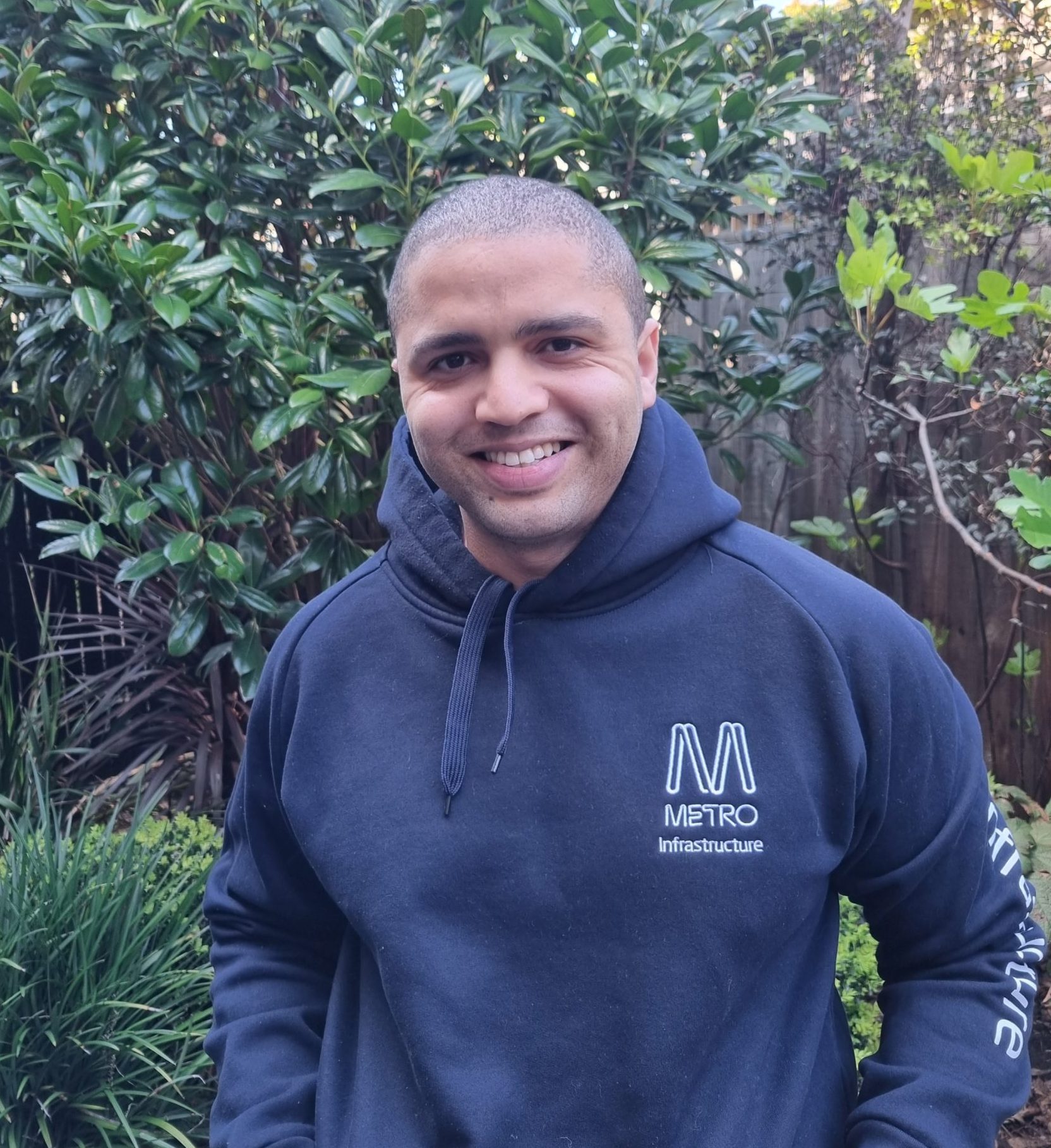
What is ballast, and what does it have to do with Blue Whales? Are recycled materials really on par with virgin materials?
We recently sat down with industry expert Kieron Treasurer, Environment and Sustainability Lead of Infrastructure at Metro Trains Melbourne (MTM) to ask about all things trains, sustainability and recycling.
Key sustainability goals
Melbourne is Australia’s fastest growing city, and over the next decade, MTM expects metropolitan rail patronage to increase from the present 232 million journeys per year to 370 million journeys. Kieron’s role is to ensure the infrastructure around this growth is sustainable.
“We have three key goals for sustainability efforts within the Infrastructure Division,” says Kieron.
“The first is to reduce waste and improve diversion from landfill, materials reuse and recycling”.
“The second goal is to embed sustainability and ethical considerations into Infrastructure’s procurement processes. During the tender process for contracted works, MTM Infrastructure is looking to partner with companies that can successfully demonstrate how they will divert as much waste as possible during the completion of works. This helps us understand how these companies will practically handle the newly introduced Recycle First Policy. This incentive aims to bring everything in house – not just in Australia, but Victoria specifically; in line with the planned circular economy for the state.
“Finally, we want to increase MTM Infrastructure’s ability to source materials locally and minimise the need to import them. The pandemic has highlighted how reliant we as a society have been on procuring items from overseas; it’s important to increase the ability to source locally and to align our works further with the Recycle First Policy.”
Partnering for Success
Metro Trains partners with local businesses in order to meet their sustainability goals. Repurpose It is one of those partners, based on our ability to recover and process used materials, like ballast (gravel or coarse stone used to form the bed of a railway track), and repurpose them into products that can be used again in new projects.
“Our Track Renewals Team has worked closely with Repurpose It for almost three years,” says Kieron.
“This collaboration has led to the identification of approximately 10 stations from which we can recover used soil, ballast and timber sleepers, transporting those materials for processing at the Repurpose It site.”
Since July 2019, Metro Trains has transported over 26,000 tonnes of used ballast to Repurpose It. It is then sorted and cleaned, ensuring it’s ready to be used for other purposes. That equates to over 2.6 million kilograms of material (or 250 Blue Whales) diverted from landfill.”
“Having weekend and night time access to such a dependable waste receptor is valuable for Metro Trains,” says Kieron.
Public and private sector collaboration
In addition to private sector partners, there are several public sector organisations that help Metro Trains with their sustainability initiatives.
“We’re working closely with the Infrastructure Advisory Group (IAG) to spearhead a project that will take Repurpose It’s recycled ballast, once it has been processed and cleaned, as a viable product to be used in the same capacity as virgin material,” says Kieron.
We’ll have more details to share about this exciting project in the coming months, so stay tuned.
“Metro Trains also works closely with other government bodies,” continues Kieron.
“For example, we have partnered with Ecologiq, a VicGov initiative which seeks to optimise the use of recycled and reused materials, driven by transport projects and Victoria’s Big Build. This body is taking leaps and bounds in sustainability, helping companies like Metro Trains deliver projects while complying with policy.
“We’ve been working hard to test the recycled ballast and demonstrate it meets all Australian Standards, as well as MTM’s internal ballast specification document (you’ll now find an inclusion for recycled ballast in this document). With IAG’s support we’re able to get this document added to Ecologiq’s information hub. This means there’s now potential to use recycled ballast in projects for Metro Trains.
The big challenge – combatting perceptions about recycled materials
One of the major roadblocks towards more sustainable practices is the mentality that recycled materials are inferior to virgin material products, as people often have this predetermined idea.
“Humans are naturally sceptical towards change,” explains Kieron.
“However, I’ve witnessed first-hand that when presented with quantifiable data, we can change people’s minds about the quality of recycled materials.”
“The challenge is for those in the sustainability sector to conduct relevant studies and demonstrate, with quantified data, that recycled materials are on par with virgin materials, and in some instances, can outperform its counterparts.”
A future of innovation
When asked what industry changes he hopes to see in the next five years, Kieron cites more innovation with the recycling of existing waste streams, and for landfills to become the alternative – not the default.
“The zeitgeist is definitely changing and it’s now become trendy to go ‘green’. With the Recycled First Policy coming online in 2021, I’m excited to see how the transport industry transforms over the next five years,” concluded Kieron.
Our partnership with MTM is something we’re proud of at Repurpose It. We look forward to sharing more about the current and future projects we have planned to create a more sustainable future for all.